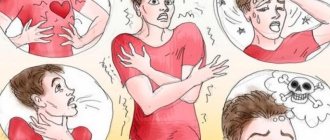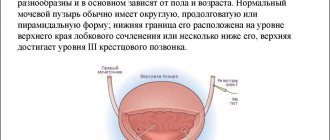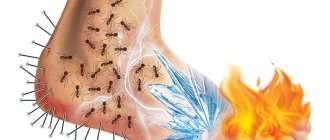Alcoholic neurosis is a condition that develops as a result of addiction in a person due to excessive consumption of alcoholic beverages. Everyone knows the harmful effects that alcohol has on human health. Not only the physical, but also the emotional and moral side of his life suffers. The more a person drinks, the lower he sinks, and over time he completely degrades.
For full treatment, it is necessary that the person realizes the mistake and wants to correct himself. Otherwise, a vicious circle will arise, from which it will be very difficult to get out. Alcohol for neurosis is strictly contraindicated. If a person is going through a difficult period in life, it is highly not recommended to treat this condition with alcohol. Otherwise, complications will certainly arise, leading to other changes in consciousness.
Causes and symptoms of alcoholic neurosis
The source of the disease can be various factors. Among them are liver diseases, metabolic disorders and mental disorders, but the trigger for alcoholic neurosis is one - alcoholic drinks. At the same time, it is not necessary to drink alcohol-containing liquid in large quantities. Regular and moderate consumption of alcohol causes alcoholic depression.
The process accelerates if there are stress, quarrels and other provoking factors. At the initial stage, the reaction does not correspond to the circumstances and emotions are not where they should be. A sign of the disease is the presence of:
- anxiety;
- chronic anxiety;
- irritability;
- obsessive thoughts;
- indecision;
- feelings of fear;
- bad mood;
- loss of consciousness in severe cases;
- rapid fatigue;
- inadequate self-esteem;
- lack of goals in life;
- inferiority complexes.
A person tries to eliminate each symptom with a new dose of alcohol, which leads to addiction. Alcohol creates the effect of well-being, but is a strong poison and has a negative impact on the personality, often provoking the emergence of such a problem as the diagnosis of VSD.
Symptoms
Neuroses and alcohol are often interdependent things. If neurosis occurs as a result of excessive consumption of strong drinks, certain symptoms will appear that will be difficult to ignore. What are they?
Formation of addiction
The habit of regularly drinking alcohol leads to the development of addiction. A person develops such an unpleasant problem as alcoholism. With alcoholism, a person cannot control himself, his whole life is focused on momentary weakness, and he himself becomes a weak-willed person, incapable of anything. The formation of addiction occurs gradually, and often a person does not even have time to understand what is really happening to him.
An addicted person cannot control his own life. His loved ones are sure to suffer and experience a whole bunch of negative emotions. Relatives of a patient with alcoholism, as a rule, try to return him to normal life. If this fails, the family often breaks up. Although there are some women who endure alcoholic husbands around them for years and at the same time suffer in silence. In any case, someone has to pay for the state of temporary oblivion.
Sweating, chills
Alcoholic neurosis also leads to other sad consequences. After taking large doses of alcohol, an addicted person often feels cold and hot. He cannot control this condition. Chills and sweating are natural manifestations of ill health. A person who drinks simply cannot remain healthy. Alcohol affects all internal organs, primarily the liver.
Irritability
A person who is addicted to alcohol necessarily suffers himself. It’s as if he begins to spread negative energy around himself. Irritability accumulates and spills over onto others. This is why close relatives suffer first.
A person who loves to drink, as a rule, does not think about those who are next to him. Irritability gradually begins to dominate his mood. Previous habits and interests disappear somewhere. There is also melancholy and despondency. This mood does not change for a long time.
It can take years before a person realizes that something needs to change. In most cases, the condition called alcoholism cannot be fully cured. It very rarely happens that a drunken alcoholic is supported by his loved ones so much that he wants to change seriously and for a long time. More often than not, it turns out that there is simply no one to change for, and there is no desire as such.
Headache
Neurosis caused by drinking large portions of alcohol often causes recurring attacks of headaches. It is very difficult for someone who is addicted to understand that they need to stop drinking. He does not want to change and does not want to spend his efforts on it. Most often, the requests of relatives, their pleas and tears have no power at all. All because a person has become dependent on his own feelings.
As it turns out with a detailed analysis of feelings, the person was simply trying to escape from reality, which frightened her, terrified her, and made her feel uncomfortable. External ill-being does not allow a person to develop and leads to internal degradation. Alcoholic neurosis, one way or another, is accompanied by periodic headaches.
Is it possible to drink alcohol with neurosis?
It is recommended to avoid drinking alcohol in case of neurosis, but in some cases drinking alcohol is allowed. This depends on the following factors:
- neutral attitude towards alcoholic products;
- dose of ethanol;
- type of neurological disorder.
People with hypotensive disorders tolerate ethanol well, as it dilates blood vessels, improving the well-being of patients who suffer from low blood pressure. A person with alcohol intolerance should give up not only alcohol, but also ethanol-based medications.
Stages of development of addiction and nervousness
There are three stages of chronic alcoholism. The speed at which addiction forms is determined by several factors:
- reception frequency;
- quantity and strength of alcohol consumed;
- age;
- floor;
- presence of mental illness;
- social conditions;
- individual characteristics.
The course of alcoholism in neurosis can be slow, and sometimes the stages change very quickly, and within them there is a change in personality, the development of alcoholic degradation and an increase in signs of a neurotic disorder.
First stage
Alcohol addiction usually develops slowly. Initially, it is invisible to others. This is precisely the first stage that the patient himself is not aware of. Alcoholic drinks cause a feeling of pleasure, their dose is gradually increased. A person drinks alcohol in any situation; a reason is found more and more often.
Over time, performance begins to decline, during the period between drinking sessions, health worsens, irritability is observed, and sleep disturbance appears. This stage of alcoholism lasts from 1 to 5 years. Sometimes it does not go into the second stage and continues throughout life. Even in this case, neurological disorders occur.
Second stage
The course of the disease directly depends on the stage of alcoholism. This dependence determines the frequency of binge drinking, the amount of alcohol consumed and the consequences of drinking for the alcoholic. It is also important what kind of alcohol the patient prefers - the strength of the drink also determines the stage of addiction. Each of them has its own symptoms.
The classification of alcoholism is influenced by the patient’s age and gender. In women, alcoholism more often than in men affects the state of the nervous system - symptoms of hysteria and psychosis appear more quickly in women. Individual characteristics determine how quickly a person moves from one stage of alcoholism to another.
First stage
How to treat alcoholic neurosis?
If there are disorders of the human nervous system, it is necessary to take measures to correct the situation. Treatment measures should be started early in order to return the patient to a normal perception of reality. With developed and strengthened alcoholism, the personality quickly degrades without noticing this process, and in the future cannot stop. A person may understand that by his actions he is harming loved ones, but does not find the strength to correct it. To normalize the patient’s condition, you need to:
- Decide. Extracting personality from the pathological process is an important step. A person must make an independent, informed decision that will motivate him to move in the right direction. If the patient does not want to get rid of alcohol addiction, then there will be no development and everything will end in circles. At this stage it is necessary to take responsibility for changes for the better. Difficulties will arise, but the person will be ready for it.
- Define values. The patient must understand the purpose for giving up a bad habit. Thoughts about saving loved ones from suffering and their joy in the event of a positive outcome will not be superfluous. First of all, a person must make changes in his life for his own sake. In this case, there is a high probability of a positive result.
- Think about yourself. Understanding the reasons and benefits of sobriety is an important aspect of treatment. When everything around the patient is bad, he must find his goal, which is worth the temporary inconvenience. When individual values are found, a person will be able to reflect on his actions and mistakes in the past.
- Fill life. Neuroses when combined with alcohol occur due to general dissatisfaction with life, which needs to be filled with meaning. This factor will force the patient to overcome obstacles for the sake of his goal. He will begin to enjoy small victories over himself. Striving for a better lifestyle allows you to achieve positive effects in a short period of time.
- Take medications and see a psychotherapist. In severe and advanced situations, it is necessary to take medications. This method will be required in patients who cannot independently cope with the need to drink alcohol. Special medications help block cravings for alcoholic beverages and improve physical condition. The disadvantage of drugs is their lack of effect on thinking. They cannot motivate a person to develop, comprehend what is happening and generate hope.
Medicine or poison?
Alcohol in neurosis is a constant companion, since the only drink before leaving the house makes a person feel more confident, and he loses the feeling of fear. Unfortunately, the dosage has to be increased each time, since the body gets used to processing a certain amount of alcohol and this leads to unwanted complications.
For many patients with this diagnosis, alcohol is the only option that can calm anxiety and trembling. Time will pass, and the person simply will not be able to distinguish between the desire to drink and a panic attack.
The worst thing is that after such “drinking” a person simply becomes dependent on alcohol and now instead of one disease he has another. By the way, the second disease, “alcoholic”, entails more severe consequences in the form of destruction of internal organs and aggravation of the psychological state.
On the verge of alcoholism, the patient thinks that with a glass he calms his nerves, just as tobacco addicts think of a cigarette. Dependence on any type of drug or alcohol comes quickly, but getting rid of it is much more difficult. This also applies to those people who like to drink several cups of coffee a day. Without noticing this, they become addicted to caffeine. Imagine, if the need for coffee arises, what is it like for people with alcohol addiction?
Consequences of alcoholic neurosis
The problem has a devastating impact on how people dependent on alcohol communicate with others. In most cases, the disease is the cause of family breakdown and problems with colleagues and superiors at work, because... the patient begins to be late, truant and quarrel with others.
In this case, neurosis may begin to develop in a spouse who, over time, gets used to alcohol, keeping the other half company in drinking alcohol-containing liquid.
This person develops depression. He stops taking care of his appearance, hygiene and nutrition. Over time, the meaning of life is lost, which leads to death. People who drink give birth to sick children who are developmentally delayed, suffer from mental disorders, do not have a normal upbringing, and have a host of other problems. The consequences of the pathological condition are:
- decreased thinking potential;
- problems communicating with people;
- development of diseases of internal organs;
- reduction in performance.
If you do not contact a specialist in a timely manner, severe psychosis is observed, which is triggered by alcohol intake. One of its types is delirium tremens, which is characterized by hallucinations and delusions. In this case, rehabilitation is practically impossible due to destructive phenomena in the brain.
What is psychotherapy in the treatment of neurosis?
As you already understand, neurosis is a deviation from the norm, but it will not be possible to return this norm quickly. In order to reassure the reader, we present statistics: almost 80% of heavy drinkers have deviations and use in their treatment not only a medicinal approach in the form of coding for alcoholism, but also a psychotherapeutic rehabilitation program for alcoholism, preferably of an inpatient type.
We will help you cope with neurosis:
- Identify the causes of disorders
- Understand the extent of disease and destruction
- Let's influence the expansion of interests
- We will teach you how to set goals and go towards them
- Understand your feelings
- And most importantly: we will teach you to live soberly
All this is achieved through the coordinated work of psychologists, psychotherapists, chemical dependency counselors, social workers and other specialists who have experience changing the quality of life. Two main strategies on the road to recovery:
- Conversation with the client
- Cognitive psychotherapy within inpatient programs and preferably long-term
The task of each specialist is to bring a person out of a neurotic state and begin to methodically work with him, reproduce life situations, and look for positive solutions. We teach how to intelligently assess life situations, and a calm and cozy environment helps a person open up.
We adhere to the treatment of neuroses without the use of drugs. Naturally, in the initial stages they are certainly necessary, but then we need to teach a person to cope with difficulties without using substances that alter consciousness.
At the initial stage of treatment of neuroses, they are used
- Antidepressants
- Psychostimulants
- Nootropic drugs
- Neuroleptics
- Tranquilizers
But, over time, we refuse them too, since the main goal is complete abstinence from substances that alter consciousness. A sober look at the realities of life and constructive ways to solve problems is the goal for a mature person!
Additional ways to treat neuroses
An alcoholic continues to drink because he does not have the skills to live a normal life in society (or they have been lost), hence psychosis and neuroses. An internal problem of an alcoholic, which can only be solved through psychotherapy and nothing else.
Conflicts and stressful situations have always forced a person to seek consolation, and what can we say about an alcoholic? An alcoholic has only one consolation and that is alcohol. It gives him comfort and peace, but later deprives him of his sanity.
Music or art therapy can help you relax, yoga or acupuncture helps very well - all of this has a beneficial effect on the psyche and makes a person think. You need to learn to create, not destroy, and this also requires time and good specialists - you can get all this in our addiction treatment programs and it doesn’t matter to us what kind of addiction you have, the main thing is that we will help you change your outlook on life.
Effects of alcohol
Ethanol is quite rightly called a universal tranquilizer. This substance, minimal quantities of which our body produces on its own, is necessary for metabolic processes to occur. Therefore, when we infuse ourselves with ethanol of external origin, the body does not need to recognize or worry too much about this substance.
Ethanol is not only related to our body, it is also a high-calorie food product or nutritional (nutritional) factor that can accelerate and change the absorption of both other food and medications.
Each person’s body has some kind of tolerance or tolerance to alcohol. It is believed that tolerance to alcohol is determined by the Asian gene inherited from our ancestors.
It is useful to remember that Russians began to drink alcohol only in the 14th century, when it was imported from Europe. That is, Europeans have been drinking before us for 14 centuries. This is more than enough time for Europeans to undergo natural selection. The average European can drink much less than a Russian because his drunken ancestors have already been rejected by evolution.
Neurosis in women
Neuroses are a group of diseases characterized by functional disorders of nervous activity, that is, increased excitability and fatigue. There are no organic changes in the central nervous system.
With neuroses, deviations in behavior are completely reversible, but their duration can be several months or years. Neurosis often becomes a reaction to a difficult situation, a kind of protection from serious problems.
This way of responding allows a woman to get out of difficulties and reduce the danger they may pose. “Heart attacks” and the development of pathological fears often become the only opportunity for a woman to get help from other people.
Manifestations of VSD
Neurocirculatory or vegetative-vascular dystonia is an exclusively domestic diagnosis that cannot be found in foreign medical literature. International classifiers include somatoform autonomic dysfunction and generalized anxiety disorder, which are closest to our understanding of VSD.
The basis of VSD is considered to be an imbalance between the two parts of the autonomic nervous system - sympathetic and parasympathetic or activating and inhibitory. Normally, these two parts balance each other, and we can cry and laugh after stress, sleep soundly after physical overload, or blush all over our bodies when going from cold to warm.
Our autonomic activity is “conducted” by the hypothalamus and the cerebral cortex, where signals from all corners of our body flow. It is with the insufficiency of the hypothalamus and its neuro-endocrine defects that doctors associate the likelihood of the formation of dystonia.
The main manifestations of VSD are divided into 3 main types:
- cardiac type - pain and interruptions in the heart, a feeling of lack of air, discomfort throughout the body;
- hypertensive – periodic rises in blood pressure provoked by stress or a “unfavorable” position in a psychological sense;
- hypotonic – a persistent decrease in blood pressure to the point of fainting, also provoked by stressful events or experiences.
Between these main forms there are intermediate ones that aggravate the condition.
What does alcohol do to the brain?
You can safely drink 100 g of beer. Each subsequent gram of alcohol causes aggregation or sticking together of red cells - red blood cells. A small blood clot forms, which clogs a vessel of suitable diameter - a capillary.
At this time, a person feels elated, he begins to sway slightly, his gait becomes less confident, and his gestures become less precise. At the moment of intoxication, the part of the brain fed by the blocked vessel simply shuts down.
After the formation of a microthrombus in the capillary, the further development of the situation occurs in different ways - depending on your luck:
- resorption of the blood clot means the activation of a part of the brain, which marks the cessation of intoxication;
- the capillary cannot withstand the blood pressure and bursts, the blood from it saturates the area of the brain, the neurons in which die;
- The blood clot does not dissolve, which disrupts the nutrition of the brain area.
If a neuron dies, connective tissue takes its place—the form remains, but the function does not.
The human brain consists of more than 100 billion nerve cells, you can “drink” them all your life, and there will still be some left. But the problem is that with each dead neuron, the safety margin of our “commander-in-chief” decreases. Nature is smarter than us, and never uses up its reserves completely. At some stage of drunkenness, a person will experience psychosis or dementia, paralysis or heart attacks - both of which temporarily make further alcohol consumption impossible.
The deceit of the VSD
The diagnosis is made after a comprehensive examination, when organic or irreversible causes caused by structural changes in organs and tissues are excluded.
At the initial visit, this diagnosis can only be preliminary, requiring clarification. The problem is that in different years, VSD included initial forms of ischemic and hypertensive heart disease, arterial hypertension, diabetes mellitus, stress cardiomyopathy, post-traumatic stress disorder, anxiety and obsessive-compulsive disorders, and multiple sclerosis. For some time, there were even infections at the level of VSD, namely the period before the development of fever.
With the development and increasing availability of diagnostic equipment, the number of conditions classified as VSD is gradually decreasing. Finding out the exact cause of the disease allows us to exclude many diseases from this category.
VSD is a definition into which many incomprehensible conditions can be “dumped.” There is no medical error in this; there is a lack of diagnostic equipment and techniques. Therefore, an established, long-standing diagnosis of VSD in a person does not exclude repeated studies or the use of previously unused diagnostic methods. Sometimes, during the diagnostic search, a disorder is discovered from which a person can be completely cured.
Prevention of recurrences of neurosis
Prevention of neuroses includes a set of measures to create favorable living and working conditions, normalize sleep and eliminate factors that can provoke emotional stress.
Proper nutrition and maintenance therapy, including self-hypnosis and relaxation classes, will help prevent neurotic disorder.
Measures that will help prevent neurosis are:
- balanced diet enriched with vitamins;
- eliminating factors that can provoke the disease;
- developing a tolerant attitude towards stress.
Nutrition for neuroses
The diet of a person prone to neurosis should include vitamin-rich and











